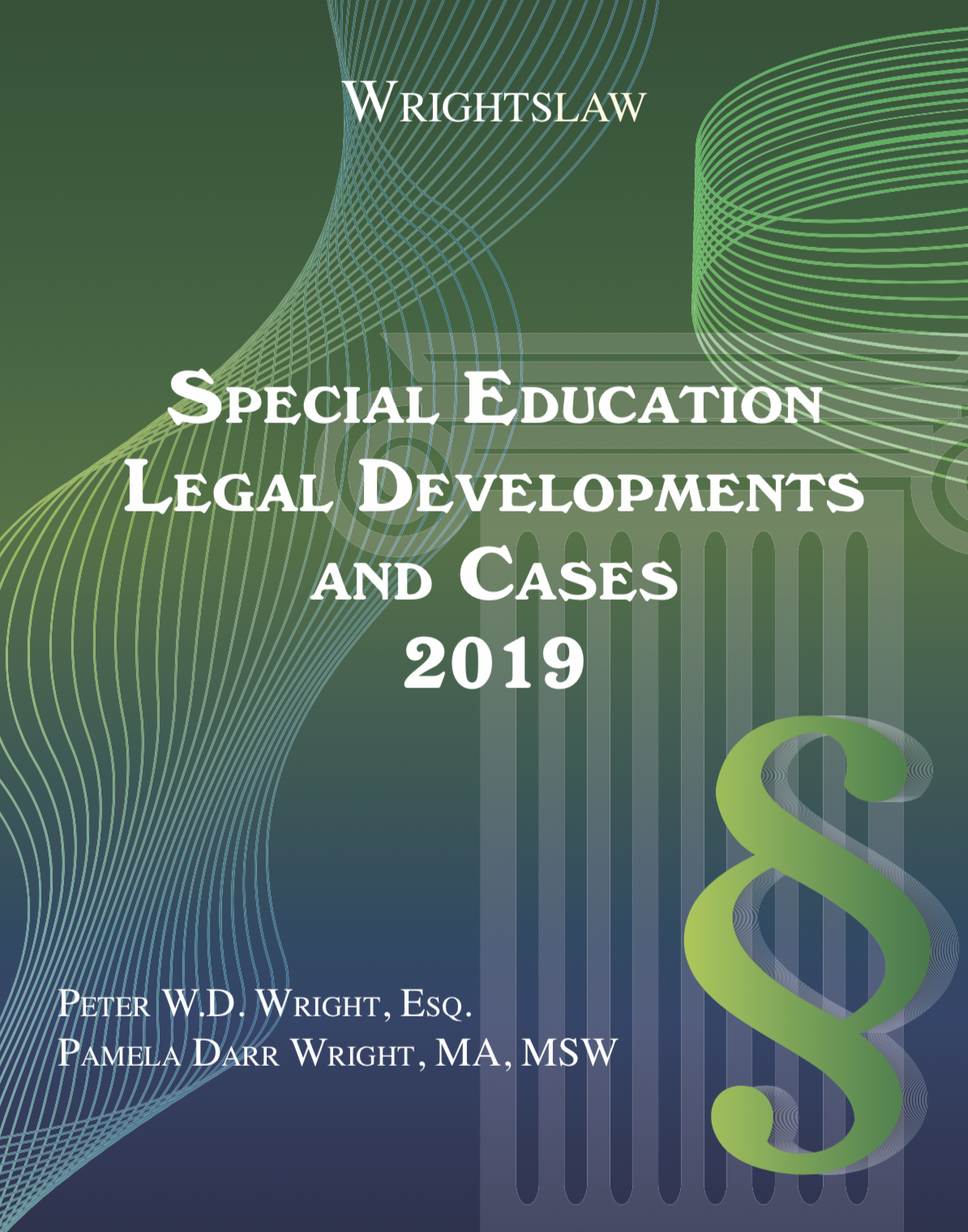[an error occurred while processing this directive]
Wrightslaw Game Plan for New Parents
Download the printer friendly version of this article
“All of this is new. I'm overwhelmed. Where do I start?"
“Although Daniel has been receiving special education services for a year and a half, his progress is minimal at best. We shared our concerns with the school and asked for additional services. We are not optimistic.”
“All of this is new to us (even the Internet). A friend told us about your site – this is why I’m writing you. What information should I read to become a better advocate for Daniel?”
Charles speaks for many parents who have questions about special education.
Negotiating for Special Ed Services
As a parent, you negotiate with the school for services. To be a successful negotiator, you must understand the system and how it works. Many parents don’t realize that school systems are bureaucracies. Parents often don’t know how important decisions are made - or by whom.
Until now, parents have been barred from effective advocacy by lack of information and isolation. The Internet is changing the status quo. Parents who are knowledgeable about their children’s rights (and their own rights and responsibilities) and know how to use tactics and strategies are far more likely to succeed.
If you are a “new parent,” this Game Plan will help you get started.
Gather Information & Hone Advocacy Skills
2. From Emotions to Advocacy: The Parents’ Journey helps parents understand their emotions and how to use emotions as a source of energy and strength.
3. Your Child Has School Problems: Whose Fault Is It? teaches you about “school culture” and how this hidden factor affects educational decision-making.
4. The Art of Writing Letters will teach you how to write letters that get results, and how to avoid common pitfalls.
5. Understanding Tests and Measurements for the Parent, Advocate and Attorney teaches you how to measure your child’s progress in special education.
6. Your Child's IEP: Practical and Legal Guidance for Parents & Advocates teaches you about the legal requirements for your child’s IEP and how to develop good IEPs.
Visit the the Advocacy Library to find dozens of articles that will help you become a more effective advocate for your child.
Learn About Your Rights & Responsibilities
2. Contact your State Department of Education – ask them to send you ALL their publications about special education.
3. Contact your State Protection and Advocacy Agency – ask them to send you ALL their publications about special education.
Get a Comprehensive Evaluation from a Private Sector Expert
Read One Book a Month
If your child has reading problems, you need to learn about effective practices in reading instruction.
An excellent book is Straight Talk About Reading Problems by Susan Hall, Louisa Moats, and Reid Lyon. In Straight Talk, you’ll learn research-based methods of reading instruction.
Subscribe to The Special Ed Advocate Newsletter
Subscribers to The Special Ed Advocate receive announcements and "alerts" about new cases and news events, new uploads, conference announcements, special offers, and more.
Self-Help: Discussion Group & Wrightslaw Forum
If you have feedback or suggestions about the Discussion Group, we would be grateful if you would take a minute to share your thoughts with us. Please send your suggestions and thoughts to
Special Ed Advocacy Tutorial
You'll learn about the personal qualities of an advocate, basic legal rights under the IDEA and Section 504, Eligibility, Evaluations, Eligibility Meetings, Components of an IEP, Procedural Safeguards (designed to protect your and your child's rights), and discipline issues.
The tutorial also includes sample letters and forms, a glossary of terms, and links to dozens of resources.
More Help from WrightslawWrightslaw: From Emotions to Advocacy
"From Emotions to Advocacy is the best, practical, informative, empathetic book on the market. It's amazing and thrilling to be an advocate for 15 years, to read FETA, and feel the thrill of 'Oh, my God! that is so true', and to be able to sharpen my skills." Fran, New Hampshire
"You have given me the courage and strength to get an appropriate program for my autistic son. Your law book is my bible!" -- Susan
If you are a parent who is advocating for your child, read our book, Wrightslaw: From Emotions to Advocacy - The Special Education Survival Guide.
|
Index
(pdf)
|
|
|
Cover
(pdf)
|
For
more resources, visit FetaWeb.com,
the companion site to our book, Wrightslaw:
From Emotions to Advocacy.
Wrightslaw: Special Education Law
Wrightslaw: Special Education Law includes the full text of the Individuals with Disabilities Education Act with extensive commentary by Pete. The book also includes Section 504 of the Rehabilitation Act, and the Family Educational Rights and Privacy Act, and a casebook of special education decisions by the U. S. Supreme Court.
You'll learn about the personal qualities of an advocate, basic legal rights under the IDEA and Section 504, Eligibility, Evaluations, Eligibility Meetings, Components of an IEP, Procedural Safeguards (designed to protect your and your child's rights), and discipline issues. The tutorial includes sample letters and forms, a glossary of terms, and links to other information for parents. Links for new parents.
Dr. Packer's site also includes hundreds of links to excellent information about disabilities.
LDOnline. LD Online is a good source of information for parents of children with disabilities.
International Dyslexia Association (IDA).
From your description of your son's reading problems, it sounds like he may have a language learning disability that is affecting his ability to read, write and spell. For information about educational methods and techniques designed to help children with language learning problems, contact the International Dyslexia Association (formerly the Orton Dyslexia Society).
National Information Center for Children and Youth with Disabilities (NICHCY). NICHCY hosts a huge site that contains thousands of articles, including articles that focus on information from parents.
Margaret Kay. Margaret Kay is a Pennsylvania psychologist
in private practice. You will find valuable information about reading,
writing, and spelling problems on her site. Get information
about dyslexia from Dr. Kay’s site.







